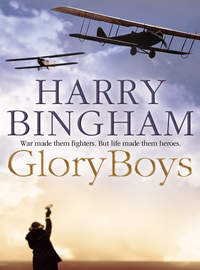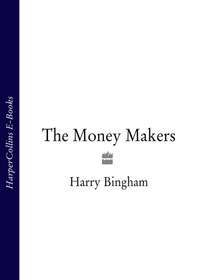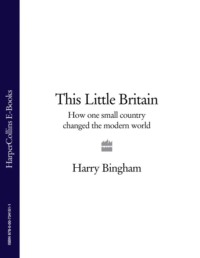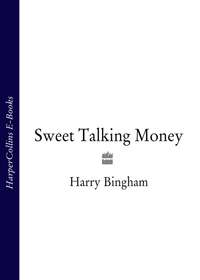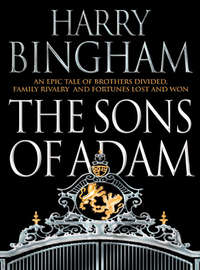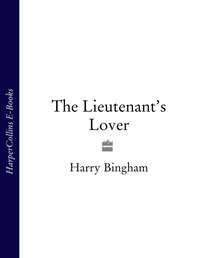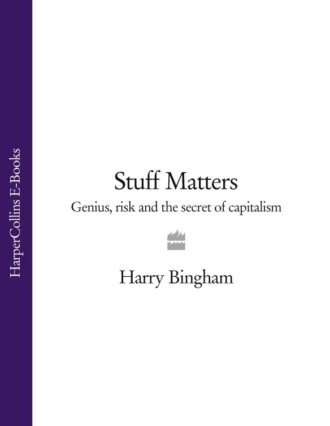
Полная версия
Stuff Matters: Genius, Risk and the Secret of Capitalism

Stuff Matters
Genius, Risk and the Secret of Capitalism
Harry Bingham

For N
‘See how the true gift never leaves the giver: returned and redelivered, it rolled on until the smile poured through us like a river.’
Table of Contents
Cover Page
Title Page
INTRODUCTION
PART ONE The Entrepreneur
ONE Risk
TWO Will
THREE Persuasion
FOUR Invention
FIVE Bastards
PART TWO The Money Men
SIX Bankers
SEVEN Investors
EIGHT Masters of the Universe
NINE Bean-Counters
PART THREE Firms and Markets
TEN Markets
ELEVEN The Firm
TWELVE Agents
THIRTEEN Psychopaths
FOURTEEN Generation Bollywood
PART FOUR Into Our Heads
FIFTEEN Morons
SIXTEEN Happiness
SEVENTEEN Bubbles
PART FIVE Theories
EIGHTEEN Economists
NINETEEN Motivations
TWENTY Ideologies
PART SIX Genius, Risk and the Secret of Capitalism
TWENTY-ONE Genius, Risk and the Secret of Capitalism
FURTHER READING
NOTES
INDEX
Acknowledgements
Copyright
About the Publisher
INTRODUCTION
This is a story which begins with a 7-year-old girl, a broken cooking pot, and a financial crisis.
The 7-year-old, Kat, is the daughter of some good friends of ours and not long ago she spent the weekend with my wife and me. Although we’d lined up a full programme of entertainment, the thing that Kat enjoyed most was our house, a picture perfect thatched cottage. She liked the huge old fireplaces, the chambers once used for smoking meat, the brick ovens used for baking bread. She loved scrambling up into the loft, where you can still see the original thatch poking through the original 350-year-old roof battens.
More than that, Kat was awestruck that the battens had simply been cut from the hedge outside the window, the thatching straw from the field just beyond. In Kat’s world, things come from shops, or on trucks, or by order over the internet. Houses certainly aren’t hand-built by their owners, using only materials to be found in the surrounding fields and hedgerows. In her eyes, the house was something from a fairy tale, a place that stood half a step from reality.
She was also peculiarly interested in an old metal cooking pot that stands on the hearth, and which we use to store newspaper, firelighters and other bits and pieces for the fire. Kat had somehow got it into her head that the cooking pot too was 350 years old and it fascinated her that this object had (as she thought) once been handled by someone old enough to be her eighteen-times-great grandmother. I didn’t have the heart to put her straight for two reasons. First, because the pot certainly looks battered enough to have seen off a century or two, and second, because I knew that a widow once living in this house did own an iron cooking pot. I know that because a neighbour had lent me a volume of local history which happened to record the old lady’s will, a document that bequeathed her terribly few possessions to different family members: a stool to one, some farming implements to another, a ‘cooking pot with a broken lid’ to a third and so on. Though she had almost nothing to leave, she nevertheless cared about the little she had. Back then, stuff mattered. Kat somehow sensed that. She understood that this fairy-tale world played by rules different from her own.
We had a lovely weekend with Kat, and when she left, the cooking pot reverted to its previous, non-magical status as Place to Store Firelighters. Quite likely, I’d have thought no more about it, except for the last ingredient of this tale: a financial crisis. Because all this took place the week after Fannie Mae and Freddie Mac imploded. The week when Lehman Brothers went spectacularly bust. The week when the Federal Reserve made an $85 billion loan to bail out the collapsed insurer AIG. The week when Merrill Lynch, a giant investment bank, was sold to Bank of America. The week when the speculative attacks on HBOS, a massive British bank, grew so intense that it too lost its independence.
Next to all of these calamities, the previous victims of the credit crunch hardly seemed to matter. Northern Rock? Phooey! What’s £25 billion between friends? Prior to that week, the biggest American victim of the credit crunch had been Bear Stearns, an investment bank forced to sell out for a derisory $2.2 billion. This week, no one was deriding any sale, no matter how small the consideration. You almost got the feeling that if you’d walked down Wall Street in possession of $10 and a bagful of doughnuts, you could have purchased any bank you wanted. ‘The doughnuts too, sir? You’re too kind.’
In these giddy conditions, a quotation came into my head, one that I couldn’t immediately place but which lingered anyway: ‘All that is solid melts into air, all that is holy is profaned.’ The rhythms were wrong, but the phrase possessed an almost Shakespearean intensity. Sensing that there was more to the fragment than I was remembering, I looked it up:
All that is solid melts into air, all that is holy is profaned…
Modern bourgeois society…a society that has conjured up such gigantic means of production and of exchange, is like the sorcerer who is no longer able to control the powers of the nether world whom he has called up by his spells…It appears as if a famine, a universal war of devastation, had cut off the supply of every means of subsistence; industry and commerce seem to be destroyed. And why? Because there is too much civilization, too much means of subsistence, too much industry, too much commerce.
– KARL MARX and FRIED RICH ENGELS,
The Communist Manifesto
Marx and Engels were writing 160 years ago, yet their description fits the 2008/9 financial crisis almost perfectly. All that is solid has melted into air – or, to be more precise, has melted into the hands of a number of very surprised governments and furious taxpayers, the Wall Street sorcerer no longer in control of his spells.
Now, it’s probably best to say straight away that I’m no communist. I got a degree in economics from Oxford University, then went straight into the City, where I spent a couple of years working for J.P. Morgan, the same fine bank that went on to buy Bear Stearns for those $2.2 billion.
After two years, I quit. I was an idealistic soul and thought that my talents, such as they were, might be better directed for the Good of Humanity. I’d originally intended to use my training at J.P. Morgan to talk my way into the World Bank, but this was 1989. The Berlin Wall was being torn down. The decrepit Soviet empire was breaking up. The old socialist model had failed, but there was an immense amount of work to be done before the capitalist model could get going properly. In short, Eastern Europe needed help. It needed me. So I took a temporary post offering economic advice to the newly democratic government in Poland (it folded shortly afterwards), then found a full-time post at EBRD, a development bank set up to rebuild the East.
I spent the next eighteen months zooming round Eastern Europe, seeking to invest in the promising private enterprises which were springing up everywhere. It was a time of extraordinarily rapid change and, for those of us lucky enough to be in the right place at the right time, responsibility too. But I became disenchanted. Not with the Easterners, who were turning their countries round with extraordinary speed, but with the EBRD itself. The EBRD was owned by a consortium of several dozen governments from East and West, who encumbered it with a hopelessly top-heavy and bureaucractic approvals process. The longer I spent in Eastern Europe, the more I noticed that it was those greedy so-and-sos from the private sector who were doing all the really amazing work – pouring in money, people, skills, energy and know-how. We poor saps in the Good of Humanity sector were coming a distant and unbeloved second.
So I quit my job again. I interviewed with a number of banks, but ended up back where I’d started at J.P. Morgan, where I spent several happy years as a banker in the mergers and acquisitions department. I made money. I worked with some very nice and able people. I enjoyed huge levels of responsibility and expectation. I might have gone on merging and acquiring for many more years to come but, at the end of the 1990s, my wife, Nuala, became ill, bed-bound, edge-of-life-and-death, terrifyingly ill.
So I moved on once more, from the City to the bedside. I cared for Nuala and wrote my first novel. I got an agent. I got a publisher. I found myself stumbling backwards into a new career, making the move from one of the best paid, most widely loathed occupations in existence to one of the worst paying, but most highly regarded ones.
People often ask me if I miss investment banking. I certainly enjoyed my time there, but enjoyment isn’t the deepest kind of satisfaction there is. Banking always felt like work – enjoyable, demanding, varied, responsible work, to be sure – but nevertheless something that nobody of sound mind would ever do for fun. Writing has never felt like that. For the last ten years or so, I’ve put in plenty of hours at the keyboard, and almost none of those hours have felt like work. I feel as though I’ve found some important part of my essence as a writer. That’s the good part. The bad part is that, for all but a very few authors, writing doesn’t provide enough income to live on. Most authors supplement their income in other ways and, as soon as Nuala was strong enough for me to give up my role as full-time carer and part-time author, I too rooted around for other ways to make a buck. In 2005, I set up a company called the Writers’ Workshop. The idea was that we’d offer editorial advice to first-time writers. To begin with there were just two of us, me and a friend, also a professional author. We built a website, advertised our services, and waited for manuscripts to start rolling in.
And roll they did. To my continuing astonishment, the venture’s been a success. Not the sort that buys a private jet and my own holiday island in the Caribbean but, in its own humble way, a success.
My reason for telling you all this is that my own eccentric personal journey through life connects back to that cooking pot. Over the last 350 years, some weird alchemy has taken place, which has utterly transformed the world and our expectations of being human. The Oxfordshire widow who lived in what is now my house seems poor to us today. Her few recorded possessions seem shockingly scanty. No books. No form of entertainment. No form of transport. Nothing mechanical. No complex method of lighting or heating. No soft furnishings. No decorative items that we know of. Nothing to bathe in. No form of time-keeping. No holidays. No health care worth the name. Rudimentary education at best. She’d have had salt, but no sugar, no spices, no tea, no coffee, not much meat. Particularly in winter and spring, her diet would have afforded terribly little variety. Some years, she’d have gone hungry too. She had a few tools for working the land, a few household items, and a minimal amount of furniture. That was all. When Kat encountered a tiny slice of that woman’s life, she instantly recognized it as being utterly, astonishingly different from her own.
Yet that widow wasn’t unusually poor. In 1674, the average Briton subsisted on somewhat less than $4 per day. Just to be perfectly clear, that number, the $4 a day, has been adjusted to give a figure directly comparable with today’s money. The average Zimbabwean today is about as well off as that widow and her peers. They don’t throw away broken cooking pots in Zimbabwe now, and they didn’t throw them out in seventeenth-century Britain.
If you think that sounds awful, bear in mind that Britain was then the second richest country in the history of world (the Netherlands was somewhat richer). Viewed over the entire span of humanity’s existence, seventeenth-century Britain was a place of extraordinary affluence, long lives, comfortable homes, educational and vocational opportunity. The Britain of that cooking pot represented close to the best that humanity had managed in its 199,650 years of existence. In the fifteen centuries following the birth of Christ, the average human lived on the equivalent of about $1.25 a day, an amount now regarded by economists as marking absolute poverty of the most pernicious sort. The kind of poverty that kills and starves, deprives and restricts.
These comparisons are worth hammering home because it’s so easy to lose sight of the miracle that has happened over the last 250 years or so, and which Kat called attention to by her fascinated reaction to that vanished world. Some extraordinary alchemy has transformed the human lot from being one of almost universal, grinding poverty to one of very widespread affluence. For sure the world still has far too many poor people in it, but it has a darn sight more rich ones than ever it used to. The miracle of wealth creation is now so well established, so taken for granted, that we start demanding more of it. Make Asia rich! Make Africa rich! Eliminate poverty! Eliminate infectious disease! Free health care for all! Put humans on Mars! Make me live to be a hundred! Low cost air fares, cheap motoring, and no climate change, please!
I’m not against those kinds of ambition. On the contrary, I’m entirely in favour of demanding a lot of ourselves, but what’s stunning is that we can voice these kinds of aspirations without sounding crazed. Human history can, if you like, be divided in two phases. The first phase lasted for approximately 199,750 years, and represents mankind’s existence in a world marked by generalized, extreme, brutish poverty, by horribly compromised life expectancy, by illiteracy and innumeracy, by men and women almost universally failing to achieve their potential.
The second phase, which has lasted 250 years so far, represents mankind’s experience of extremely rapid self-enrichment. The world we live in now is one where things are made in China, ordered by laptop, and delivered in an eyeblink; a place of iPods and cornflakes, hedge funds and research labs; a place where roofing materials are no longer cut from hedges and scythed from fields. This world – Kat’s world and ours – is mystifyingly complex, but somewhere in that complexity lies the philosopher’s stone which turns lead into gold.
Alchemy, however, has its dark side and on the weekend of Kat’s visit, that dark side was alive, well and destroying a bank near you. As London and New York convulsed in panic, I realized something shocking. I was a financially literate chap. I’d been an economist, a banker, and (in a very small way) an entrepreneur. Yet there was a respect in which I understood nothing at all about how the world works. I could sketch out supply and demand curves and explain the laws of comparative advantage. I could even have told you what an Asset Backed Security was and how Credit Default Swaps worked and how Lehman Brothers went bankrupt.
But all this was an understanding of the intellect, an understanding that left the rest of me entirely blank. The fact that I understood my own tiny niche in the capitalist system had blinded me to my massive ignorance about everything else. I hadn’t generally felt that ignorance, because my background had enabled me to sketch demand curves and blather about different types of security. Nevertheless, the extent of my unknowing was profound. It was though I’d read a million books about Italy without ever having been there.
In the weeks after Kat left us, as governments and central bankers started to mop up after the hurricane, I realized that I wanted to write a guidebook about the world of money. I wanted to understand, and not just at an intellectual level, the magic of the alchemy that has plucked the human race from extreme poverty to its current position of ever-expanding riches. I wanted to understand the storms that blow up out of nowhere, seeming to threaten every assumption which we once took for granted. I wanted to meet the people who make that world turn: multimillionaire entrepreneurs and Indian shift-workers, small-time manufacturers and big company CEOs. I wanted to get to the heart of the miracle, the miracle that has transformed a poor and brutish world into an ever richer and more liberated one. And I wanted to explore the culture of this world, the deep rhythms that make it tick. Above all, I wanted to come to know it the way that a traveller might, with time, come to know Italy.
This book is the outcome of that exploration. The businessmen and women I’ve spoken to have led companies collectively worth hundreds of billions of dollars. The bankers I’ve spoken to have handled well over a trillion dollars’ worth of mergers and acquisitions transactions and have invested uncountably huge sums on the world markets. But I’ve also met some of the little guys; the ordinary people doing ordinary jobs who nevertheless play their own crucial part in keeping this precarious alchemy afloat. In short, I wanted to find out about everything an economics degree does not cover, that ten years in the City never gets close to.
I still don’t know how to refine oil, smelt metals, extrude plastic, etch silicon, write program codes, or do any other of those fine things that makes Kat’s world the rich and prosperous world it is. But I do now have an almost bodily sense of how the whole thing hangs together. I’ve learned how extraordinarily commonplace financial crises are and how the miracle of capitalism goes on happening nevertheless.
And my journey, unexpectedly, has gone further than that. It’s all very well going places and meeting people, but I came to see that the alchemy of wealth happens inside each of us as well. We have strong feelings about money. We are alternately avaricious and ostentatious, greedy and generous, fearful and optimistic. My journey to the land of money wouldn’t have been complete unless it stepped inside our own hearts and minds, our own hubbub of powerful emotions.
This book offers an account of my travels. It’s given me a sense of the alchemy that turned our world from what it was to what it is, a man-made miracle of creation. It’s also taken me to the heart of the paradox that lies at the heart of capitalism, a paradox by which money is both the most important thing there is and something that doesn’t matter an iota. I came to see that economics, as taught at university and as reiterated by any number of economics bestsellers, is a fraud, a subject that purports to explain everything but doesn’t even understand the thing that lies at its very heart: the human relationship to money.
But those things lie ahead of us, at the journey’s end, not at its start. Because this is a trip that starts the only place it can: in the mind and instinct of the entrepreneur.
ONE Risk
Men wanted for hazardous journey, small wages, bitter cold, long months of complete darkness, constant dangers, safe return doubtful. Honour and recognition in case of success.
– Advertisement placed by ERNEST SHACKLETON in 1914
It begins with character. Character and a moment of risk.
The risk takes no single form. Perhaps to most of us the moment comes and goes without our even noticing. A conversation overheard; a difficult client with a wild-eyed plan; a death; an idea; a throat irritation.
Most of us, and I include me, look for the life more comfortable. Great wealth would be nice, of course, but we’ve learned by now that wealth doesn’t make home visits. It’s an animal to be hunted, not a guest to be entertained. Our desire for comfort – the regular pay cheque, hearth and home, keeping our capital somewhere safe – may not be an overwhelming compulsion. We may be ocean-sailors at the weekend, even if we’re wage-slaves during the week. But it’s there, the need for security. The poet Philip Larkin called it a Toad, ‘its hunkers…heavy as hard luck, and cold as snow’, a Toad that squats there asking us how we’d feel with our capital committed and our income gone. How we’d feel, talking in the pub with our mates, them with their steady jobs and their career progression, and we with a scheme that looked so smart once and so insanely optimistic now. Accordingly, the moment comes and the moment goes and because we’re not on the lookout for it, we don’t so much as notice its passing.
Most people aren’t like that. One in a hundred? One in a thousand? It’s not that they overcome their Toad, that they wrestle the beast into submission, it’s that they don’t have the Toad at all. William Knox D’Arcy was born to a well-to-do English family in 1849. He was educated at Westminster School, an elite public school located in the rambling embrace of Westminster Abbey, where every British monarch since 1066 has been crowned and the final resting place for seventeen of their kingly souls. In 1866, when their father went bust, the family emigrated to Australia to start all over again. They ended up settling in Rockhampton in Central Queensland, which isn’t exactly a big place now, but back then it must have seemed a million miles distant from the Abbey bells.
The young D’Arcy followed his father into law and joined the family firm. A lifetime of prosperous colonial Toad-following seemed to beckon. Then one sunny day in 1882, three brothers entered D’Arcy’s office. They were rough men, miners, and they had been sent down the road from the local bank. They brought two things, a story and a lump of rock. The story was quickly told. The three men, Frederick, Edwin and Thomas Morgan, had been prospecting for silver in the Dee valley. They had found no silver and, as we now know, there’s no silver there to be found. According to one version of the story, while on the journey back to town, Edwin had felt the call of nature. He walked a little distance from camp and urinated. As he did so, he couldn’t help noticing a peculiar black boulder that had clearly rolled into the valley floor from the slopes above. Being a man and a miner, he idly swung his pick at the stone, thinking no more than that stones were there to be hit and picks had been made to do the hitting. He struck the stone. A chipping flew off and glinted. The rock was – or seemed to be – loaded with gold.
The Morgan brothers believed they had almost literally stumbled on a mountain of money, but they knew they needed help. Legal help, to stake a robust claim. Financial help, to bring capital to bear in exploiting the find. Technical help, to extract rock from the mountain and gold from the rock. Commercial help, to sort out hiring and transport and markets and sales. Their first stop had been the bank, the second stop D’Arcy’s office. (And perhaps it’s worth noting here that there are various different versions of the story in circulation, though the gist of them all is the same.)
Now for just a moment, stop there. Had you been sitting at D’Arcy’s desk that day, gazing out at a dusty street, hearing a commotion outside in the anteroom, seeing these three unconventional clients enter your office, listening to their tale and fingering a tiny chipping of black and gold stone – what would you have done? What would you have said? How would you have proceeded?


